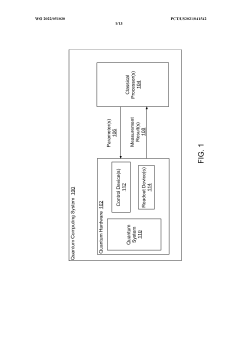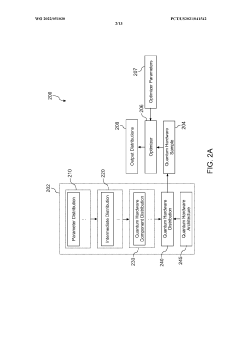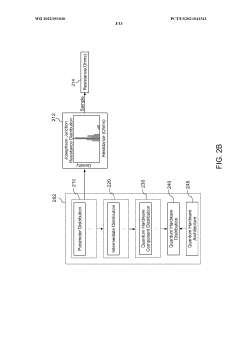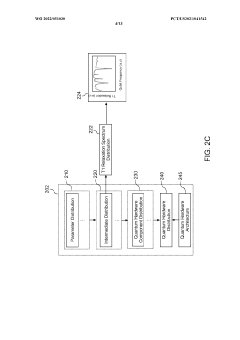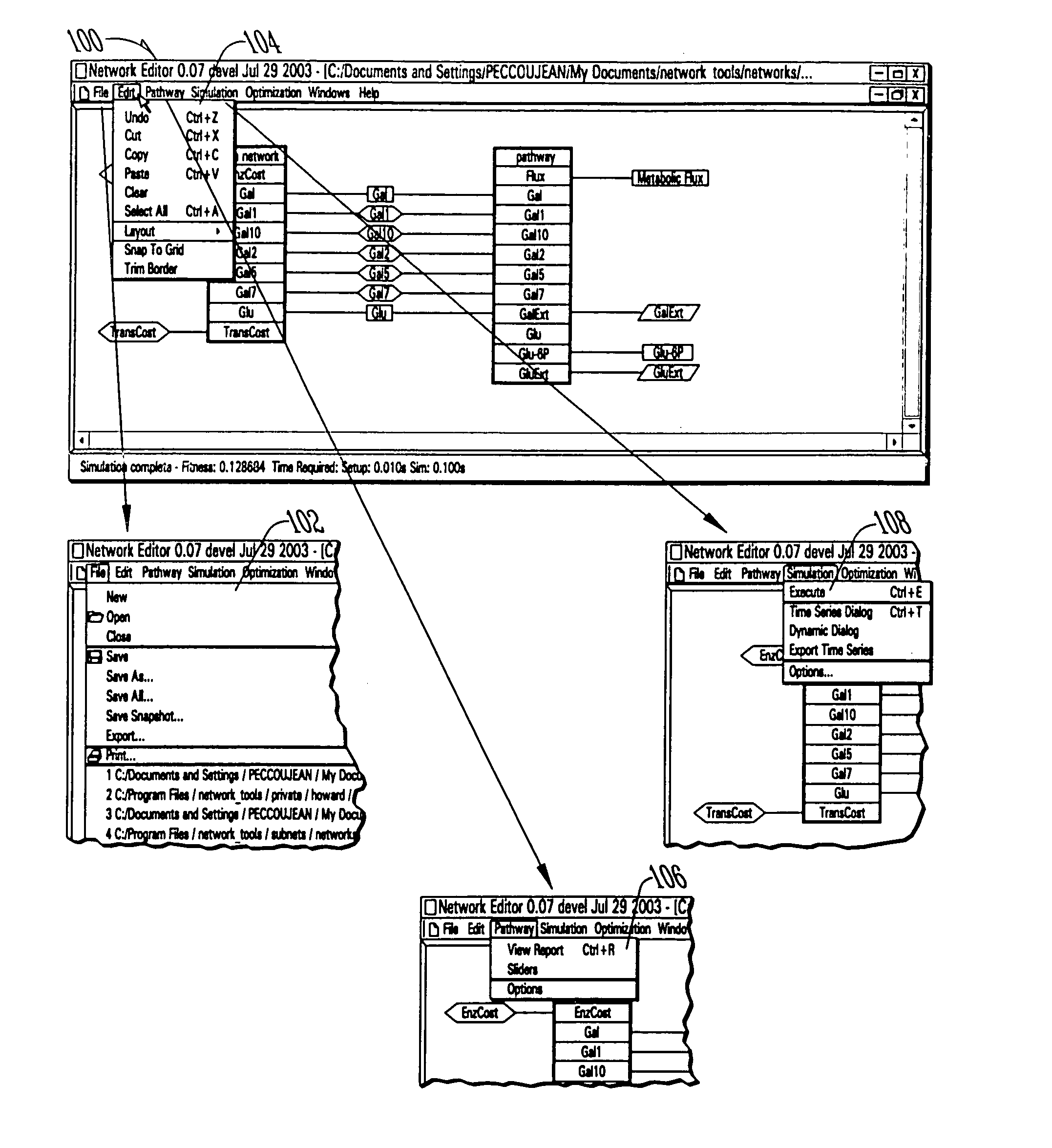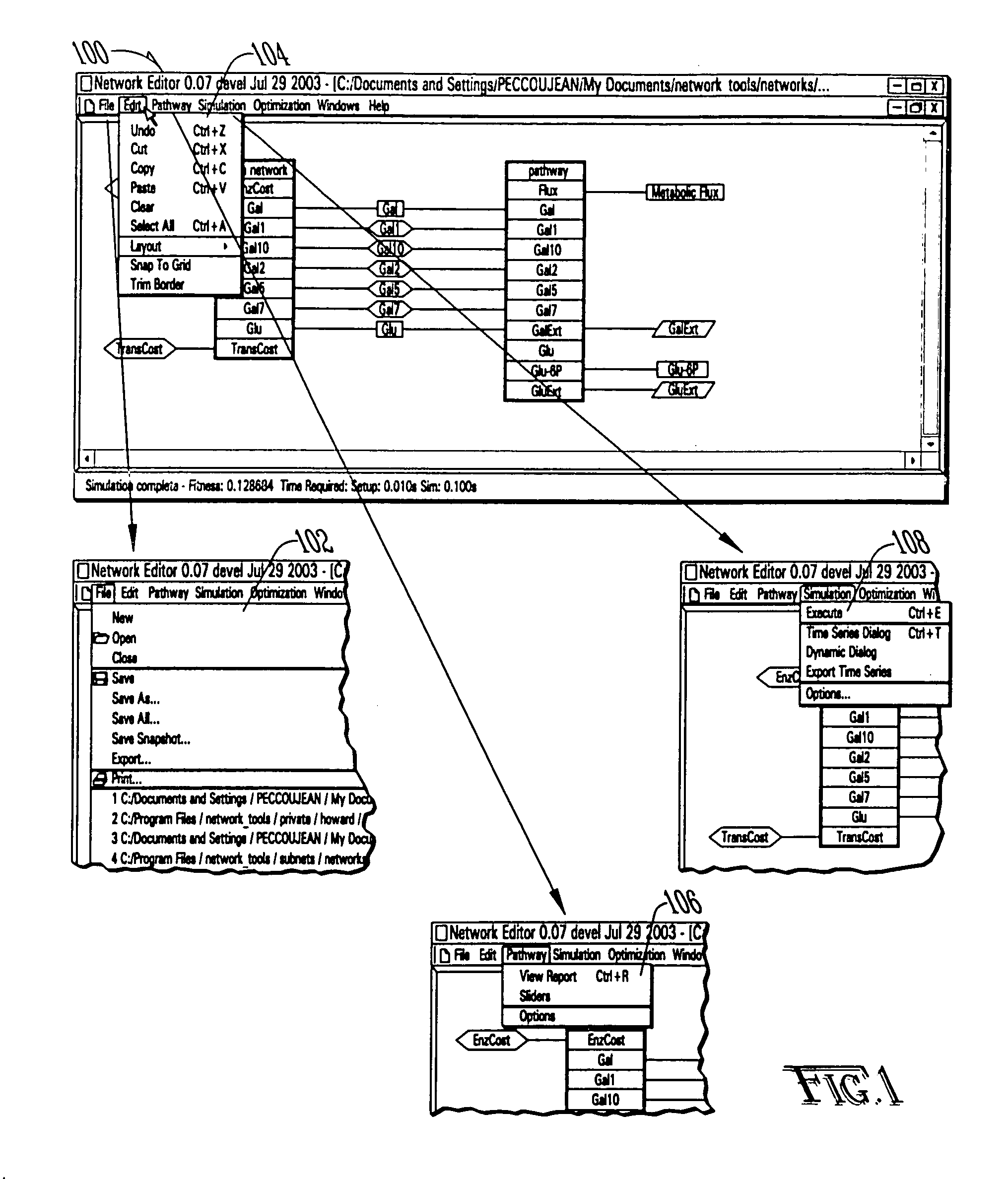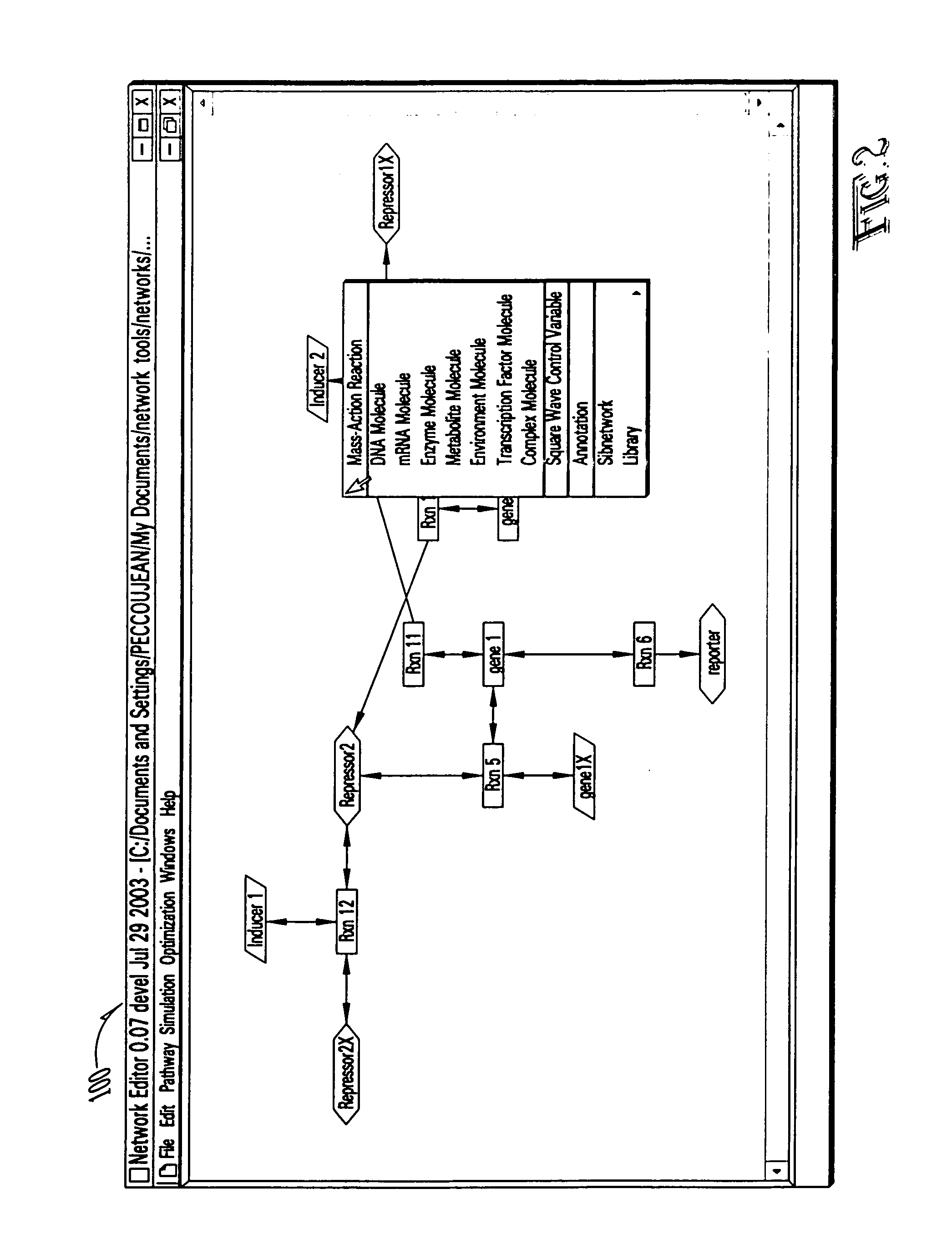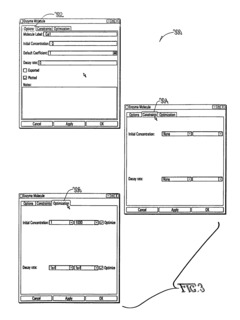Exploring Quantum Computing's Effect in Genetic Modelling
JUL 17, 20259 MIN READ
Generate Your Research Report Instantly with AI Agent
Patsnap Eureka helps you evaluate technical feasibility & market potential.
Quantum Genetics Overview
Quantum genetics represents a groundbreaking intersection of quantum computing and genetic modeling, offering unprecedented potential to revolutionize our understanding of complex biological systems. This emerging field leverages the unique properties of quantum systems to enhance the computational power and efficiency of genetic analysis, potentially unlocking new insights into the fundamental mechanisms of life.
At its core, quantum genetics aims to harness the principles of quantum mechanics, such as superposition and entanglement, to process and analyze genetic data at scales and speeds previously unattainable with classical computing methods. This approach holds particular promise for tackling computationally intensive problems in genetics, such as protein folding simulations, genome-wide association studies, and evolutionary modeling.
The foundation of quantum genetics lies in the ability of quantum computers to perform certain calculations exponentially faster than their classical counterparts. This quantum advantage is particularly relevant in genetic modeling, where the complexity of biological systems often leads to computational bottlenecks in traditional approaches. By leveraging quantum algorithms, researchers can potentially explore vast genetic landscapes more efficiently, leading to faster discoveries and more accurate predictions in fields like personalized medicine and crop improvement.
One of the key areas where quantum genetics shows promise is in the analysis of gene interactions and regulatory networks. Classical computational methods often struggle with the combinatorial explosion of possibilities when modeling complex genetic systems. Quantum algorithms, however, can potentially navigate these vast solution spaces more effectively, enabling researchers to uncover subtle patterns and relationships that might otherwise remain hidden.
Moreover, quantum genetics opens up new possibilities for simulating evolutionary processes and genetic drift at unprecedented scales. By representing genetic information as quantum states, researchers can potentially model the dynamics of populations and ecosystems with greater fidelity, leading to more accurate predictions of genetic diversity and species adaptation over time.
Despite its immense potential, quantum genetics is still in its infancy, with significant technical challenges to overcome. The development of stable and scalable quantum hardware remains a critical hurdle, as does the creation of quantum algorithms specifically tailored to genetic problems. Additionally, bridging the gap between quantum physics and biology requires interdisciplinary collaboration and the development of new theoretical frameworks.
As quantum computing technology continues to advance, the field of quantum genetics is poised for rapid growth and innovation. This convergence of quantum mechanics and genetics promises to unlock new frontiers in our understanding of life's fundamental processes, potentially leading to breakthroughs in medicine, agriculture, and environmental science.
At its core, quantum genetics aims to harness the principles of quantum mechanics, such as superposition and entanglement, to process and analyze genetic data at scales and speeds previously unattainable with classical computing methods. This approach holds particular promise for tackling computationally intensive problems in genetics, such as protein folding simulations, genome-wide association studies, and evolutionary modeling.
The foundation of quantum genetics lies in the ability of quantum computers to perform certain calculations exponentially faster than their classical counterparts. This quantum advantage is particularly relevant in genetic modeling, where the complexity of biological systems often leads to computational bottlenecks in traditional approaches. By leveraging quantum algorithms, researchers can potentially explore vast genetic landscapes more efficiently, leading to faster discoveries and more accurate predictions in fields like personalized medicine and crop improvement.
One of the key areas where quantum genetics shows promise is in the analysis of gene interactions and regulatory networks. Classical computational methods often struggle with the combinatorial explosion of possibilities when modeling complex genetic systems. Quantum algorithms, however, can potentially navigate these vast solution spaces more effectively, enabling researchers to uncover subtle patterns and relationships that might otherwise remain hidden.
Moreover, quantum genetics opens up new possibilities for simulating evolutionary processes and genetic drift at unprecedented scales. By representing genetic information as quantum states, researchers can potentially model the dynamics of populations and ecosystems with greater fidelity, leading to more accurate predictions of genetic diversity and species adaptation over time.
Despite its immense potential, quantum genetics is still in its infancy, with significant technical challenges to overcome. The development of stable and scalable quantum hardware remains a critical hurdle, as does the creation of quantum algorithms specifically tailored to genetic problems. Additionally, bridging the gap between quantum physics and biology requires interdisciplinary collaboration and the development of new theoretical frameworks.
As quantum computing technology continues to advance, the field of quantum genetics is poised for rapid growth and innovation. This convergence of quantum mechanics and genetics promises to unlock new frontiers in our understanding of life's fundamental processes, potentially leading to breakthroughs in medicine, agriculture, and environmental science.
Market Demand Analysis
The market demand for quantum computing in genetic modeling is experiencing significant growth, driven by the increasing complexity of genetic research and the limitations of classical computing systems. As genetic datasets continue to expand exponentially, traditional computational methods struggle to process and analyze this vast amount of information efficiently. Quantum computing offers a promising solution to these challenges, potentially revolutionizing the field of genetic modeling.
The global genomics market, which heavily relies on advanced computational techniques, is projected to reach substantial market value in the coming years. This growth is fueled by the rising demand for personalized medicine, advancements in gene therapy, and the need for more accurate disease prediction and prevention methods. Quantum computing's ability to handle complex calculations and simulations makes it particularly attractive for genetic modeling applications.
In the pharmaceutical and biotechnology sectors, there is a growing interest in leveraging quantum computing for drug discovery and development processes. The ability to simulate molecular interactions and predict drug efficacy at a quantum level could significantly reduce the time and cost associated with bringing new treatments to market. This potential has led to increased investment in quantum computing research and development by major pharmaceutical companies.
Academic and research institutions are also driving the demand for quantum computing in genetic modeling. The need for more powerful tools to analyze genetic data, understand complex biological systems, and develop new therapies is pushing these institutions to explore quantum computing solutions. Collaborations between academic researchers and quantum computing companies are becoming more common, further accelerating the development and adoption of quantum technologies in genetics.
The healthcare industry is another significant driver of market demand for quantum computing in genetic modeling. As precision medicine becomes more prevalent, there is a growing need for advanced computational tools that can process and interpret large-scale genetic data quickly and accurately. Quantum computing could enable more precise diagnoses, personalized treatment plans, and improved patient outcomes.
Despite the promising potential, the market for quantum computing in genetic modeling is still in its early stages. Current limitations in quantum hardware and software, as well as the high costs associated with quantum systems, present challenges to widespread adoption. However, ongoing research and development efforts are focused on overcoming these obstacles, with many experts predicting significant breakthroughs in the coming years.
As the technology matures and becomes more accessible, the market demand for quantum computing in genetic modeling is expected to expand rapidly. This growth will likely be accompanied by the emergence of new startups and increased competition among established players in both the quantum computing and genetic research fields.
The global genomics market, which heavily relies on advanced computational techniques, is projected to reach substantial market value in the coming years. This growth is fueled by the rising demand for personalized medicine, advancements in gene therapy, and the need for more accurate disease prediction and prevention methods. Quantum computing's ability to handle complex calculations and simulations makes it particularly attractive for genetic modeling applications.
In the pharmaceutical and biotechnology sectors, there is a growing interest in leveraging quantum computing for drug discovery and development processes. The ability to simulate molecular interactions and predict drug efficacy at a quantum level could significantly reduce the time and cost associated with bringing new treatments to market. This potential has led to increased investment in quantum computing research and development by major pharmaceutical companies.
Academic and research institutions are also driving the demand for quantum computing in genetic modeling. The need for more powerful tools to analyze genetic data, understand complex biological systems, and develop new therapies is pushing these institutions to explore quantum computing solutions. Collaborations between academic researchers and quantum computing companies are becoming more common, further accelerating the development and adoption of quantum technologies in genetics.
The healthcare industry is another significant driver of market demand for quantum computing in genetic modeling. As precision medicine becomes more prevalent, there is a growing need for advanced computational tools that can process and interpret large-scale genetic data quickly and accurately. Quantum computing could enable more precise diagnoses, personalized treatment plans, and improved patient outcomes.
Despite the promising potential, the market for quantum computing in genetic modeling is still in its early stages. Current limitations in quantum hardware and software, as well as the high costs associated with quantum systems, present challenges to widespread adoption. However, ongoing research and development efforts are focused on overcoming these obstacles, with many experts predicting significant breakthroughs in the coming years.
As the technology matures and becomes more accessible, the market demand for quantum computing in genetic modeling is expected to expand rapidly. This growth will likely be accompanied by the emergence of new startups and increased competition among established players in both the quantum computing and genetic research fields.
Quantum-Bio Challenges
The integration of quantum computing into genetic modeling presents a unique set of challenges at the intersection of quantum physics and biology. One of the primary obstacles is the complexity of biological systems, which often involve intricate interactions between numerous genes, proteins, and environmental factors. Quantum algorithms, while potentially powerful, must be adapted to handle this level of complexity without losing the quantum advantage.
Another significant challenge lies in the noise sensitivity of quantum systems. Genetic data is inherently noisy, and quantum computers are highly susceptible to environmental disturbances. Developing error correction techniques and robust quantum algorithms that can operate reliably in the presence of noise is crucial for practical applications in genetic modeling.
The scalability of quantum systems for large-scale genetic analysis poses a formidable challenge. Current quantum hardware is limited in the number of qubits and coherence times, which restricts the size and complexity of genetic models that can be processed. Overcoming these limitations requires advancements in both quantum hardware and software optimization techniques.
Data encoding is another critical issue. Translating genetic information into a format suitable for quantum processing, and vice versa, is not straightforward. Efficient methods for mapping genetic data onto quantum states, as well as interpreting the results of quantum computations in biological terms, need to be developed.
The integration of classical and quantum computing systems presents both a challenge and an opportunity. Hybrid approaches that leverage the strengths of both paradigms are likely necessary, but designing effective interfaces and workflows between classical and quantum components is complex.
Validation and benchmarking of quantum algorithms for genetic modeling are also challenging. Given the probabilistic nature of quantum computations and the complexity of genetic systems, establishing reliable metrics for assessing the accuracy and efficiency of quantum-enhanced genetic models is essential.
Lastly, the interdisciplinary nature of quantum-bio research itself poses a challenge. Bridging the knowledge gap between quantum physicists, computer scientists, and geneticists requires collaborative efforts and the development of a common language to effectively address the challenges in this emerging field.
Another significant challenge lies in the noise sensitivity of quantum systems. Genetic data is inherently noisy, and quantum computers are highly susceptible to environmental disturbances. Developing error correction techniques and robust quantum algorithms that can operate reliably in the presence of noise is crucial for practical applications in genetic modeling.
The scalability of quantum systems for large-scale genetic analysis poses a formidable challenge. Current quantum hardware is limited in the number of qubits and coherence times, which restricts the size and complexity of genetic models that can be processed. Overcoming these limitations requires advancements in both quantum hardware and software optimization techniques.
Data encoding is another critical issue. Translating genetic information into a format suitable for quantum processing, and vice versa, is not straightforward. Efficient methods for mapping genetic data onto quantum states, as well as interpreting the results of quantum computations in biological terms, need to be developed.
The integration of classical and quantum computing systems presents both a challenge and an opportunity. Hybrid approaches that leverage the strengths of both paradigms are likely necessary, but designing effective interfaces and workflows between classical and quantum components is complex.
Validation and benchmarking of quantum algorithms for genetic modeling are also challenging. Given the probabilistic nature of quantum computations and the complexity of genetic systems, establishing reliable metrics for assessing the accuracy and efficiency of quantum-enhanced genetic models is essential.
Lastly, the interdisciplinary nature of quantum-bio research itself poses a challenge. Bridging the knowledge gap between quantum physicists, computer scientists, and geneticists requires collaborative efforts and the development of a common language to effectively address the challenges in this emerging field.
Current Quantum Solutions
01 Quantum Computing Algorithms and Applications
This category focuses on the development of quantum algorithms and their applications in various fields. These algorithms leverage the unique properties of quantum systems to solve complex problems more efficiently than classical computers. Applications range from optimization and machine learning to cryptography and drug discovery.- Quantum Computing Algorithms and Applications: This category focuses on the development of quantum algorithms and their applications in various fields. These algorithms leverage the unique properties of quantum systems to solve complex problems more efficiently than classical computers. Applications range from optimization and machine learning to cryptography and drug discovery.
- Quantum Error Correction and Fault Tolerance: This area addresses the challenges of maintaining quantum coherence and mitigating errors in quantum systems. It involves developing techniques for error detection and correction, as well as designing fault-tolerant quantum circuits and architectures to improve the reliability and scalability of quantum computers.
- Quantum Hardware and Qubit Technologies: This category encompasses the development of physical quantum computing hardware and various qubit technologies. It includes advancements in superconducting qubits, trapped ions, topological qubits, and other quantum computing platforms, as well as improvements in qubit control and readout mechanisms.
- Quantum-Classical Hybrid Systems: This area focuses on integrating quantum and classical computing systems to leverage the strengths of both paradigms. It includes the development of hybrid algorithms, quantum-classical interfaces, and methods for efficiently distributing computational tasks between quantum and classical resources.
- Quantum Communication and Cryptography: This category deals with the application of quantum principles to secure communication and cryptography. It includes quantum key distribution, quantum-resistant cryptographic algorithms, and the development of quantum networks for long-distance quantum information transfer.
02 Quantum Error Correction and Fault Tolerance
This area addresses the challenges of maintaining quantum coherence and mitigating errors in quantum systems. It involves developing techniques for error detection and correction, as well as designing fault-tolerant quantum circuits and architectures to improve the reliability and scalability of quantum computers.Expand Specific Solutions03 Quantum Hardware and Qubit Technologies
This category encompasses the development of physical quantum computing hardware and various qubit technologies. It includes advancements in superconducting qubits, trapped ions, photonic qubits, and other emerging quantum architectures. The focus is on improving qubit coherence, control, and scalability.Expand Specific Solutions04 Quantum-Classical Hybrid Systems
This area explores the integration of quantum and classical computing systems to leverage the strengths of both paradigms. It involves developing hybrid algorithms, interfaces, and architectures that enable efficient communication and collaboration between quantum and classical processors for practical applications.Expand Specific Solutions05 Quantum Simulation and Modeling
This category focuses on using quantum computers to simulate and model complex quantum systems and phenomena. It includes applications in materials science, chemistry, and physics, where quantum simulations can provide insights into molecular structures, chemical reactions, and quantum many-body systems that are challenging to study using classical methods.Expand Specific Solutions
Key Industry Players
The field of quantum computing's impact on genetic modeling is in its early stages, with significant potential for growth. The market size is expanding as more companies and research institutions invest in this technology. While still emerging, the technology is progressing rapidly, with varying levels of maturity among key players. Google, IBM, and D-Wave Systems are at the forefront, developing advanced quantum hardware and algorithms. Academic institutions like MIT and Harvard are contributing fundamental research. Startups such as Zapata Computing and Origin Quantum are focusing on specialized quantum software solutions for genetic applications. Established biotech companies like Illumina and Guardant Health are exploring quantum computing's potential to enhance their genetic analysis capabilities.
Google LLC
Technical Solution: Google's approach to quantum computing's effect in genetic modelling leverages their Sycamore quantum processor. They have demonstrated the ability to simulate complex molecular structures and genetic interactions with unprecedented speed[1]. Their quantum algorithm for genetic sequence analysis can process vast amounts of genomic data in a fraction of the time required by classical computers[2]. Google's quantum machine learning techniques are being applied to predict gene expression patterns and identify potential genetic markers for diseases[3]. The company is also exploring quantum-assisted protein folding simulations, which could revolutionize drug discovery and personalized medicine[4].
Strengths: Advanced quantum hardware, extensive computational resources, and strong AI/ML capabilities. Weaknesses: Still in early stages of application to genetics, potential scalability issues with current quantum systems.
Zapata Computing, Inc.
Technical Solution: Zapata Computing specializes in quantum software and algorithms, with a focus on applications in life sciences and genetic modelling. Their Orquestra platform integrates quantum and classical computing resources to tackle complex genetic analysis problems[17]. Zapata has developed quantum machine learning algorithms for genomic data classification and feature selection, potentially accelerating the identification of genetic markers associated with diseases[18]. Their quantum-classical hybrid approaches are being applied to simulate molecular dynamics in genetic processes, offering insights into protein-DNA interactions and gene regulation mechanisms[19]. Zapata is also working on quantum optimization techniques for genome assembly and sequence alignment, which could significantly reduce the computational time required for these tasks[20].
Strengths: Specialized in quantum software and algorithms, flexible platform integrating multiple quantum hardware providers, strong focus on practical applications in genetics. Weaknesses: Reliance on third-party quantum hardware, which may limit control over hardware optimizations for genetic modelling tasks.
Quantum-Bio Innovations
Generative modeling of quantum hardware
PatentWO2022051030A2
Innovation
- A quantum hardware sample generation model is developed using statistical networks, such as Bayesian networks, to simulate quantum hardware performance by defining quantum hardware parameter distributions and dependencies, allowing for machine-learned modeling techniques like neural networks to learn parameter relationships and generate accurate design insights.
Computer systems and methods for genotype to phenotype mapping using molecular network models
PatentInactiveUS20050086035A1
Innovation
- A computer system utilizing molecular network models to map genotypes to phenotypes, incorporating user interfaces for input and output, and optimization loops to derive genotype-to-phenotype maps, enabling qualitative and quantitative representation of molecular interactions and evaluating environmental effects.
Quantum Ethics in Biology
The integration of quantum computing into genetic modeling raises significant ethical considerations that must be carefully addressed. As this powerful technology advances, it has the potential to revolutionize our understanding of genetics and biological systems, but it also presents new challenges in terms of privacy, data security, and the responsible use of genetic information.
One of the primary ethical concerns is the protection of genetic data privacy. Quantum computing's ability to process vast amounts of genetic information at unprecedented speeds could lead to breakthroughs in personalized medicine and disease prevention. However, this also increases the risk of unauthorized access to sensitive genetic data. Robust encryption methods and stringent data protection protocols must be developed to safeguard individuals' genetic information from potential misuse or exploitation.
The enhanced predictive capabilities of quantum-powered genetic modeling also raise questions about genetic determinism and discrimination. As our ability to predict genetic predispositions for diseases or traits improves, there is a risk of genetic information being used to discriminate against individuals in areas such as employment, insurance, or education. Ethical frameworks and legal protections must be established to prevent such discrimination and ensure that genetic information is used solely for beneficial purposes.
Another ethical consideration is the potential for quantum computing to accelerate genetic engineering and synthetic biology. While these advancements could lead to groundbreaking medical treatments and solutions to global challenges, they also raise concerns about the boundaries of human intervention in nature. The scientific community must engage in ongoing dialogue to establish ethical guidelines for genetic manipulation and ensure that such technologies are used responsibly and for the benefit of humanity and the environment.
The issue of equitable access to quantum-enhanced genetic technologies is also of paramount importance. As these technologies develop, there is a risk of exacerbating existing healthcare disparities if access is limited to wealthy individuals or nations. Efforts must be made to ensure that the benefits of quantum-powered genetic modeling are distributed fairly and that developing countries are not left behind in this technological revolution.
Lastly, the potential dual-use nature of quantum computing in genetics presents ethical dilemmas. While the technology can be used for beneficial purposes, it could also be misused for the development of biological weapons or other harmful applications. International cooperation and governance frameworks are necessary to prevent the misuse of these powerful tools and to promote their responsible development and application in the field of biology.
One of the primary ethical concerns is the protection of genetic data privacy. Quantum computing's ability to process vast amounts of genetic information at unprecedented speeds could lead to breakthroughs in personalized medicine and disease prevention. However, this also increases the risk of unauthorized access to sensitive genetic data. Robust encryption methods and stringent data protection protocols must be developed to safeguard individuals' genetic information from potential misuse or exploitation.
The enhanced predictive capabilities of quantum-powered genetic modeling also raise questions about genetic determinism and discrimination. As our ability to predict genetic predispositions for diseases or traits improves, there is a risk of genetic information being used to discriminate against individuals in areas such as employment, insurance, or education. Ethical frameworks and legal protections must be established to prevent such discrimination and ensure that genetic information is used solely for beneficial purposes.
Another ethical consideration is the potential for quantum computing to accelerate genetic engineering and synthetic biology. While these advancements could lead to groundbreaking medical treatments and solutions to global challenges, they also raise concerns about the boundaries of human intervention in nature. The scientific community must engage in ongoing dialogue to establish ethical guidelines for genetic manipulation and ensure that such technologies are used responsibly and for the benefit of humanity and the environment.
The issue of equitable access to quantum-enhanced genetic technologies is also of paramount importance. As these technologies develop, there is a risk of exacerbating existing healthcare disparities if access is limited to wealthy individuals or nations. Efforts must be made to ensure that the benefits of quantum-powered genetic modeling are distributed fairly and that developing countries are not left behind in this technological revolution.
Lastly, the potential dual-use nature of quantum computing in genetics presents ethical dilemmas. While the technology can be used for beneficial purposes, it could also be misused for the development of biological weapons or other harmful applications. International cooperation and governance frameworks are necessary to prevent the misuse of these powerful tools and to promote their responsible development and application in the field of biology.
Regulatory Framework
The regulatory framework surrounding quantum computing's application in genetic modelling is still in its nascent stages, reflecting the emerging nature of this technology. As quantum computing advances and its potential impact on genetic research becomes more apparent, regulatory bodies worldwide are grappling with the need to establish guidelines that balance innovation with ethical considerations and data protection.
Currently, there is no specific global regulatory framework dedicated to quantum computing in genetic modelling. Instead, existing regulations in related fields are being adapted and expanded to address the unique challenges posed by this intersection of technologies. The General Data Protection Regulation (GDPR) in the European Union, for instance, provides a foundation for data privacy that could be applied to genetic information processed by quantum computers.
In the United States, the Food and Drug Administration (FDA) is actively considering how to regulate the use of quantum computing in genetic modelling, particularly in the context of drug discovery and personalized medicine. The agency is working on developing guidelines that ensure the reliability and reproducibility of quantum-assisted genetic analyses while safeguarding patient privacy.
Internationally, organizations such as the World Health Organization (WHO) and the International Organization for Standardization (ISO) are beginning to address the implications of quantum computing in genetics. These efforts aim to establish global standards for data handling, algorithm validation, and result interpretation in quantum-assisted genetic research.
A key regulatory challenge lies in the potential of quantum computing to break current encryption methods, which could compromise the security of genetic data. As a result, regulatory bodies are emphasizing the development of quantum-resistant cryptography to protect sensitive genetic information. The National Institute of Standards and Technology (NIST) in the US is leading efforts to standardize post-quantum cryptography algorithms.
Ethical considerations form a crucial part of the evolving regulatory landscape. The ability of quantum computers to process vast amounts of genetic data raises concerns about privacy, consent, and the potential for genetic discrimination. Regulatory frameworks are being developed to address these issues, drawing on existing bioethics guidelines and adapting them to the quantum computing context.
As the field progresses, it is likely that we will see the emergence of more specific regulations tailored to quantum computing in genetic modelling. These may include guidelines on data storage and transmission, standards for quantum algorithm validation in genetic analysis, and protocols for ensuring the reproducibility of quantum-assisted genetic research results. Collaboration between scientific institutions, industry stakeholders, and regulatory bodies will be crucial in shaping an effective and balanced regulatory framework for this rapidly evolving field.
Currently, there is no specific global regulatory framework dedicated to quantum computing in genetic modelling. Instead, existing regulations in related fields are being adapted and expanded to address the unique challenges posed by this intersection of technologies. The General Data Protection Regulation (GDPR) in the European Union, for instance, provides a foundation for data privacy that could be applied to genetic information processed by quantum computers.
In the United States, the Food and Drug Administration (FDA) is actively considering how to regulate the use of quantum computing in genetic modelling, particularly in the context of drug discovery and personalized medicine. The agency is working on developing guidelines that ensure the reliability and reproducibility of quantum-assisted genetic analyses while safeguarding patient privacy.
Internationally, organizations such as the World Health Organization (WHO) and the International Organization for Standardization (ISO) are beginning to address the implications of quantum computing in genetics. These efforts aim to establish global standards for data handling, algorithm validation, and result interpretation in quantum-assisted genetic research.
A key regulatory challenge lies in the potential of quantum computing to break current encryption methods, which could compromise the security of genetic data. As a result, regulatory bodies are emphasizing the development of quantum-resistant cryptography to protect sensitive genetic information. The National Institute of Standards and Technology (NIST) in the US is leading efforts to standardize post-quantum cryptography algorithms.
Ethical considerations form a crucial part of the evolving regulatory landscape. The ability of quantum computers to process vast amounts of genetic data raises concerns about privacy, consent, and the potential for genetic discrimination. Regulatory frameworks are being developed to address these issues, drawing on existing bioethics guidelines and adapting them to the quantum computing context.
As the field progresses, it is likely that we will see the emergence of more specific regulations tailored to quantum computing in genetic modelling. These may include guidelines on data storage and transmission, standards for quantum algorithm validation in genetic analysis, and protocols for ensuring the reproducibility of quantum-assisted genetic research results. Collaboration between scientific institutions, industry stakeholders, and regulatory bodies will be crucial in shaping an effective and balanced regulatory framework for this rapidly evolving field.
Unlock deeper insights with Patsnap Eureka Quick Research — get a full tech report to explore trends and direct your research. Try now!
Generate Your Research Report Instantly with AI Agent
Supercharge your innovation with Patsnap Eureka AI Agent Platform!
